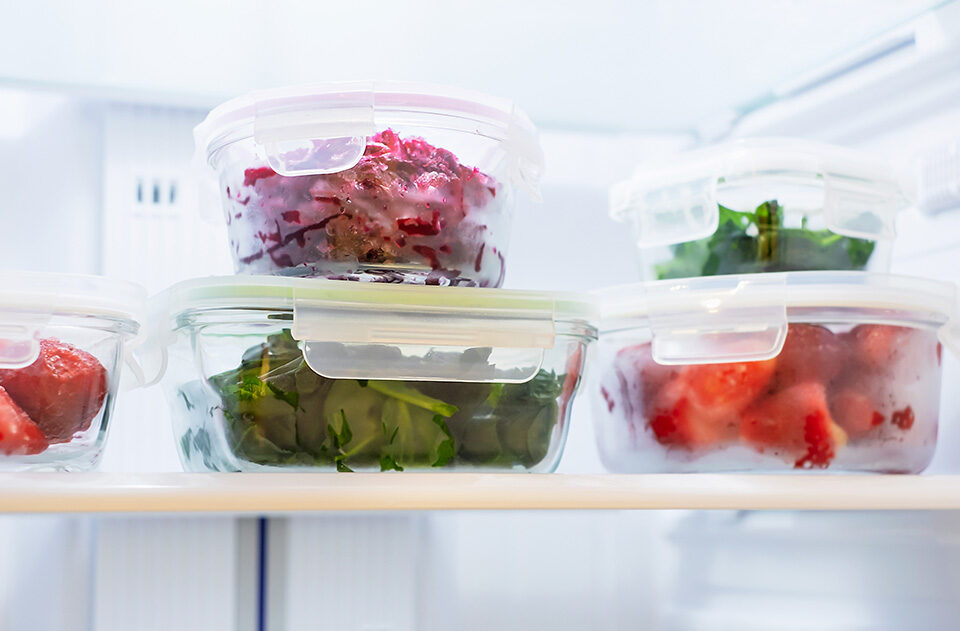Healthy Ways To Boost Immune System During The Flu Season

With winter around the corner, sweater weather and flu season will soon be among us. Now is the time to start preparing your body and increase your immunity. Lets go over the basics and science behind staying healthy.
What is Immunity?
Immunity is your body’s ability to fight the invasion of pathogens, i.e viruses and bacteria. Considering that we don’t live in a sterile world, we are exposed to pathogens every day. What makes us sick are the antigens attached to the surface of pathogens. They stimulate an immune response in the body. An immune response is the body’s defense system to fight against harmful antigens and protect the body. This is happening every day. We want our immune system to be intact and able to upgrade itself. This creates a strong immune system.
The three main types of immunity are:
Innate Immunity
This is the immunity that most people are born with. It responds with physical, chemical and cellular defenses against pathogens. Examples include your skin, hair and mucus, the defense mechanisms carried out by saliva and stomach acid, and inflammation. This type of immune response is your body’s first line of defense and does not specify any particular virus or disease- it attacks anything considered a threat.
Passive Immunity
Passive immunity happens when a person is given antibodies to a disease instead of producing them through their own immune system. This occurs naturally when a mother’s antibodies are transferred to her baby through the placenta and also after the baby’s birth with her colostrum breast milk. A person can artificially get passive immunity through blood products containing antibodies, such as in immunoglobulin therapy. This form of immunity is not long term and does not come from vaccination. Because these antibodies have not been made by the recipient, they only last as long as they survive in body fluids. Afterwards, they would need to be replaced.
Active (Adaptive) Immunity
This type of immunity occurs after your body creates antibodies for a specific virus or disease and defeats it. The next time you’re exposed to this antigen, your body already has the necessary antibodies to fight it off. For example, after a person recovers from having measles, they are protected for life by their adaptive immune system. You can also acquire this immunity through vaccinations. Vaccines mimic a specific disease, causing an immune response in the person vaccinated and hopefully you don’t exhibit illness as your body responds to the vaccine.
Can you support your immune system naturally?
You’ll be glad to know that there are ways to support your immune system. The key is to live a healthy lifestyle.
- Not smoking
- Eating a diet high in antioxidants
- Staying hydrated
- Regular exercise
- Being outside and getting enough sunlight
- Getting adequate sleep
- Minimizing stress
- Avoiding alcohol or only drinking in moderation
- Practicing good hygiene with frequent handwashing
- Taking probiotics and vitamins. I recommend these high quality multivitamin, vitamin D3, probiotic. Vitamin C Capsules or Sufficient C (lemonade powder) to be your immune boosting supplements.
A Nourishing Diet and a Healthy Immune System
A healthy immune system needs good, regular and dense nourishment. Scientists have long recognized malnourished people to be more vulnerable to infectious diseases. You can improve immunity by eating a rainbow of fresh nutritious foods. Choose foods that are nutrient dense, such as avocado, broccoli, bell peppers, blueberries, citrus fruits, free-range eggs, kale and nuts. Aim for eating organic and grass fed proteins if possible.
There is evidence that certain micronutrient deficiencies — like zinc, selenium, iron, copper, folic acid, and vitamins A, B6, C, and E — alter immune responses. These vitamins boost your immune system. Especially vitamin C and Zinc. Vitamin C helps to stimulate both the production and function of white blood cells, as well as helping your body to make important antibodies. Vitamin C’s powerful antioxidant properties help protect certain white blood cells from the toxic compounds they produce in their fight against pathogens. If you have a zinc deficiency, your body will have a hard time creating enough immune cells, i.e T-cells and white blood cells. Zinc supports your immune system by helping to fight off certain microbes. It blocks the pathway these bacteria use to take in nutrients, in turn starving the intruder and making it easier for your immune cells to kill them.
If fresh fruits and vegetables are limited, look for frozen vegetables, meats, fish, and chicken/beef broths. Processed foods weaken the immune system. Avoid foods that come in a box. Reduce your sugar, processed carbs, fast food and alcohol consumption. Inflammation from sugars, fast food, and empty calories will contribute to lowering your immunity and making recovery more difficult.
A healthy gut also plays a key role. Using a quality probiotic boosts beneficial flora that help the body process nutrients and keep harmful substances out. You can also incorporate unflavored greek yogurt or kefir to your diet. I like to make my own parfaits with unsweetened coconut greek-style yogurt sweetened with stevia topped with some blueberries and chia seeds. It makes for a hearty and delicious snack.
Immunity favoring habits
Apart from what you eat, what you do also affects the way your body fights off infection. The three key players are exercise, sleep and stress.
Exercise
Regular exercise is a prime component of conditioning your body inside and out. It enhances your body’s immune response to an antigen and improves metabolic health. Whether it’s going to the gym several days a week, taking daily 30 minute walks, or being an avid golfer, just moving your body improves overall health. Studies have shown the following correlations between exercise and immunity function:
- A clear relationship between moderate training and your risk of becoming ill.
- Exercise has an antiinflammatory effect through various means.
- Habitual exercise improves immune regulation and delays the onset of age related dysfunction.
The key takeaway here is to exercise moderately and frequently. You don’t need to body build or do extreme sports to stay healthy. Your immunity benefits from general activity. Your goal should be at least 30 minutes of physically moving everyday. Ideally, something outside that gets your heart rate up during intervals and potentially breaks a sweat. Being outside gives you the added benefit of sunlight and absorbing vitamin D. Vitamin D is produced by the body in response to sunlight and affects key cells of the immune system.
If this isn’t something you are capable of today, just start with leisurely morning walks, or taking daily swims. You will notice improvement on many levels, including your mood, sleep, and, most importantly, a healthy immune system.
Sleep
A second very important habit to increase your immune system is by getting enough sleep. When you lack sleep, your body is more susceptible to becoming ill. Without sufficient sleep, your body makes fewer cytokines, a type of protein that targets infection and inflammation, thus creating an immune response. Cytokines are both produced and released during sleep. It is recommended to have 7-8 hours of sleep a night. Not only does this help your immune system, but it also protects you from other health issues, such as heart disease, diabetes, and obesity. If you are unable to follow this sleep schedule due to a busy workweek or other factors, try to make up for the lost rest with naps. For example, you can take two naps that are no longer than 30 minutes each. One in the morning and one in the afternoon. This has been shown to help decrease stress and the negative effects of sleep deprivation on the immune system. You can also try a 20-minute siesta during your lunch hour, and another before dinner.
Stress
Stress also plays a huge component in our immune system. When you are stressed, your body’s immune response to fight off antigens is negatively affected. That is why you become more susceptible to infections during these turbulent moments. The hormone cortisol is released when your body becomes stressed. Long-term or frequent stress causes inflammation and can suppress the effectiveness of your immune system by lowering the number of lymphocytes. Lymphocytes are the white blood cells that help fight off infection. The lower your lymphocyte levels, the more at risk you are for viruses.
While most of us cannot avoid feeling stressed, there are ways to manage it. You can try meditating or being mindful for 10-15 minutes three or four times weekly to reduce your cortisol levels and reduce inflammation. Research also shows it helps prevent the breakdown of your chromosomes that leads to cancer and premature aging. Practicing yoga also lowers stress hormone levels and calms your nervous system, reducing inflammation. Deep breaths help boost your resistance to infection. The inverted poses in yoga help circulate fluid through your lymphatic system, which in turn filters out toxins. Breathing exercises are also great approaches to lowering cortisol. The 4-7-8 breathing technique is a quick way to lower stress. Remember to focus on what you can control, and especially how you react to situations.
Conclusion
Even during peak flu season, opting for healthy choices is the best way to improve your immune system quickly. While this may seem natural to some of us, others might face a few challenges along the way. Remember that any effort you make to improve your health will reap benefits that are well worth the effort.
Always remember, I am here if you need help overcoming a virus, bacterial infection or have questions about supporting your immune system during these challenging times. Please share this with anyone who may be wondering how to support their immune system.
Have questions about how to better protect yourself?





